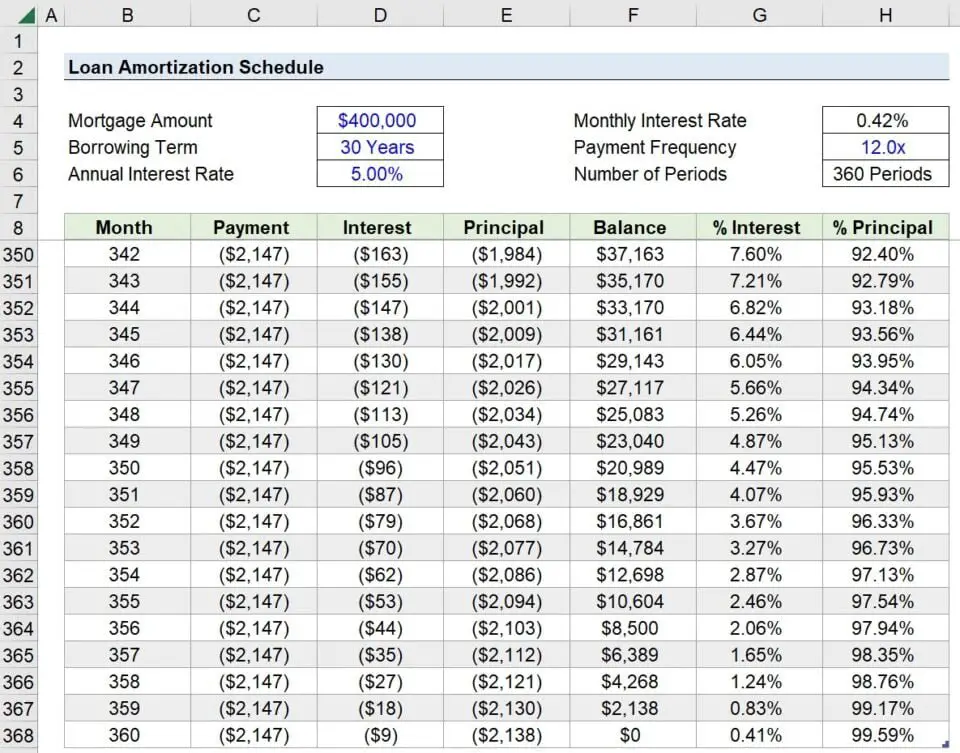Are you a freelancer looking for ways to minimize your tax liability? Look no further! In this article, we will provide you with practical tips for reducing tax liability for freelancers. Whether you’re a seasoned freelancer or just starting out, understanding how to navigate the complexities of taxes is crucial for your financial success. By implementing these strategies, you can ensure that you are maximizing your deductions and minimizing your tax burden. So, let’s delve into the world of tax planning and discover effective ways to optimize your freelance income.
Tips for Reducing Tax Liability for Freelancers
Freelancing offers many benefits, such as flexibility and independence. However, it also comes with unique tax challenges. As a freelancer, you are responsible for managing your own taxes and reducing your tax liability. In this article, we will discuss some valuable tips to help you navigate the complex world of freelance taxes and minimize your tax burden.
1. Keep Accurate Records
Keeping accurate records is essential for every freelancer. It not only helps you stay organized but also ensures that you claim all eligible deductions and accurately report your income. Here’s what you should include in your record-keeping routine:
- Track your income: Maintain a detailed record of all the payments you receive from clients. This can include invoices, receipts, or any other form of payment documentation.
- Expense documentation: Keep track of all your business expenses, such as office supplies, equipment, software subscriptions, and travel costs. Save receipts and invoices for these expenses to support your claims during tax filings.
- Separate bank accounts: Consider opening a separate bank account dedicated solely to your freelancing business. This separation makes it easier to track business-related transactions and demonstrates your commitment to operating a legitimate business.
2. Understand Deductible Expenses
One of the significant advantages of freelancing is the ability to deduct eligible business expenses. By claiming these deductions, you can effectively reduce your taxable income. Here are some common deductible expenses for freelancers:
| Expense Category | Examples |
|---|---|
| Home Office Expenses | Rent, utilities, internet, and office supplies used for your workspace |
| Business Equipment | Laptops, cameras, software, and other tools directly related to your freelancing work |
| Professional Services | Accounting or legal fees, website maintenance, and graphic design services |
| Travel Expenses | Transportation, accommodation, and meals during business trips |
| Health Insurance | Premiums for health insurance coverage |
It’s crucial to familiarize yourself with the specific rules and limitations for each deductible expense category, as they may vary based on your location and local tax regulations.
3. Consider Forming a Business Entity
As a freelancer, you may operate as a sole proprietorship by default. However, it might be beneficial to consider forming a business entity, such as a limited liability company (LLC) or S corporation. Here’s how forming a business entity can help reduce your tax liability:
- Tax advantages: Certain business entities offer tax benefits, such as the ability to take advantage of business expense deductions and potentially reduce your self-employment tax.
- Separate liability: By forming a business entity, you create a legal separation between your personal and business finances. This separation can protect your personal assets in case of any legal issues.
- Perceived professionalism: Operating as a formal business entity can enhance your professional image and potentially attract more clients.
Before deciding to form a business entity, consult with a tax professional or an attorney to understand the implications and requirements specific to your situation.
4. Maximize Retirement Contributions
Retirement savings are crucial for everyone, including freelancers. By maximizing your retirement contributions, you can lower your taxable income while securing your financial future. Consider the following options:
- Individual Retirement Account (IRA): Contribute to a traditional IRA to enjoy tax deductions on your contributions. Alternatively, if eligible, consider a Roth IRA, which offers tax-free withdrawals during retirement.
- Solo 401(k): As a freelancer, you have the opportunity to set up a solo 401(k) plan. This allows you to contribute both as an employer and an employee, potentially maximizing your contribution limits.
- Simplified Employee Pension (SEP) IRA: A SEP IRA is an option for freelancers without employees. It allows you to contribute a percentage of your business income, up to a certain limit.
Understanding the different retirement savings options available to you and taking advantage of their tax benefits can significantly impact your long-term financial well-being.
5. Estimated Quarterly Tax Payments
Freelancers are responsible for paying their taxes throughout the year, rather than just once during tax season. To avoid penalties and interest, it’s essential to make estimated quarterly tax payments. Here’s how to calculate and make these payments:
- Estimate your income: Calculate your expected freelancing income for the year, taking into account any fluctuations or seasonal variations.
- Calculate your taxes: Use the appropriate tax brackets and deductions to determine your estimated tax liability.
- Schedule payments: Make quarterly estimated tax payments to the IRS and any applicable state tax agencies. You can typically make these payments online or through mail.
Keeping up with your estimated quarterly tax payments ensures you remain in compliance with the tax authorities and helps you avoid significant tax burdens at the end of the year.
6. Work with a Tax Professional
Navigating the complexities of freelance taxes can be challenging. Working with a qualified tax professional can provide you with expert advice and guidance tailored to your specific situation. A tax professional can help you:
- Identify eligible deductions: A tax professional can ensure you are taking advantage of all the deductions available to freelancers in your industry.
- Stay updated with tax laws: Tax laws and regulations often change. A professional can help you stay informed and compliant with the latest tax requirements.
- Prepare and file your taxes: A tax professional can handle the preparation and filing of your tax returns, ensuring accuracy and minimizing the risk of errors that could trigger an audit.
While there may be associated costs, hiring a tax professional can ultimately save you time, money, and potential headaches in the long run.
In conclusion, reducing tax liability is essential for freelancers looking to maximize their earnings and maintain financial stability. By keeping accurate records, understanding deductible expenses, considering business entities, maximizing retirement contributions, making estimated quarterly tax payments, and working with tax professionals, freelancers can effectively manage their taxes and minimize their tax burdens. Implementing these tips will not only help you navigate the complex tax landscape but also ensure compliance with tax regulations while optimizing your financial well-being.
Tax Loophole for Small Business Owners
Frequently Asked Questions
Frequently Asked Questions (FAQs)
What are some tips for reducing tax liability for freelancers?
As a freelancer, there are several strategies you can implement to reduce your tax liability:
How can I track my business expenses effectively?
To track your business expenses effectively, consider using accounting software or apps that allow you to categorize and record your expenses. Additionally, keep all receipts and invoices organized for easy reference during tax season.
What deductions can freelancers claim?
Freelancers can claim deductions such as home office expenses, professional development courses, travel expenses related to business, health insurance premiums, and self-employment taxes. Consult a tax professional to ensure you are claiming all eligible deductions.
Should I pay estimated taxes as a freelancer?
Yes, freelancers typically need to pay estimated taxes quarterly. This helps you avoid penalties for not paying enough taxes throughout the year. It’s advisable to consult with a tax professional to determine the appropriate amount to pay.
How can I reduce my self-employment tax?
You can reduce your self-employment tax by maximizing your business deductions, contributing to a retirement plan for self-employed individuals, and considering forming an S Corporation. Speak with a tax professional to understand the options available to you.
What records should I keep as a freelancer for tax purposes?
For tax purposes, it is important to keep records of all your business income and expenses, including invoices, receipts, bank statements, and contracts. These records will help you accurately report your income and claim deductions.
Is it beneficial for freelancers to form a business entity?
Forming a business entity, such as an LLC or S Corporation, can provide freelancers with various benefits, such as limited liability protection and potential tax advantages. It is recommended to consult with a legal and tax professional to determine the best structure for your business.
Are there any tax credits available for freelancers?
Yes, freelancers may be eligible for tax credits such as the Earned Income Tax Credit (EITC), Retirement Savings Contributions Credit (Saver’s Credit), and Health Coverage Tax Credit (HCTC). Review the eligibility criteria and consult a tax professional to see if you qualify.
Final Thoughts
When it comes to reducing tax liability for freelancers, there are several key tips to keep in mind. First, it’s important to keep detailed records of all income and expenses related to your freelance work. This will help ensure accurate reporting and potential deductions. Additionally, consider setting up a separate business bank account to keep your personal and business finances separate. Another valuable strategy is to take advantage of available tax deductions and credits specifically designed for freelancers, such as home office expenses or self-employment tax deductions. By implementing these tips for reducing tax liability, freelancers can maximize their deductions and minimize their tax burden.



